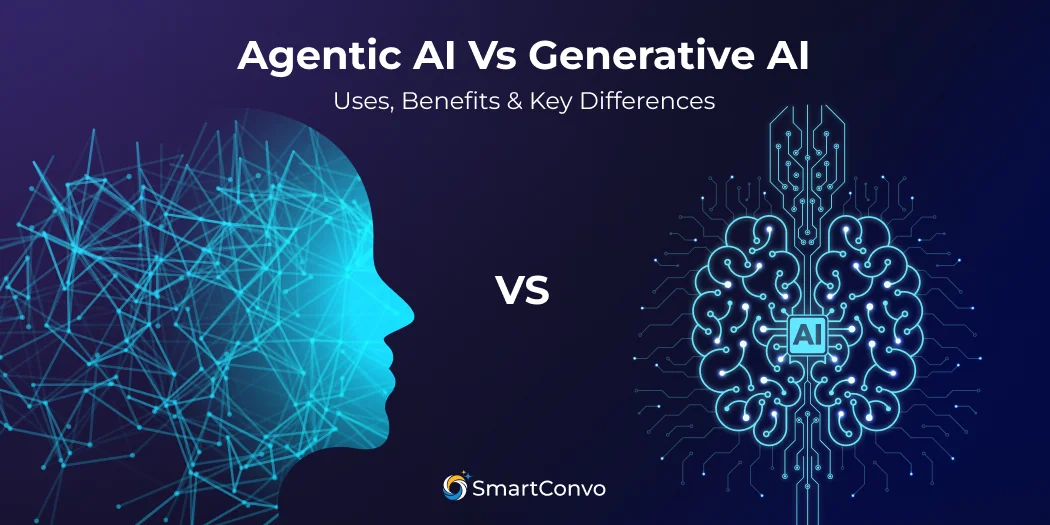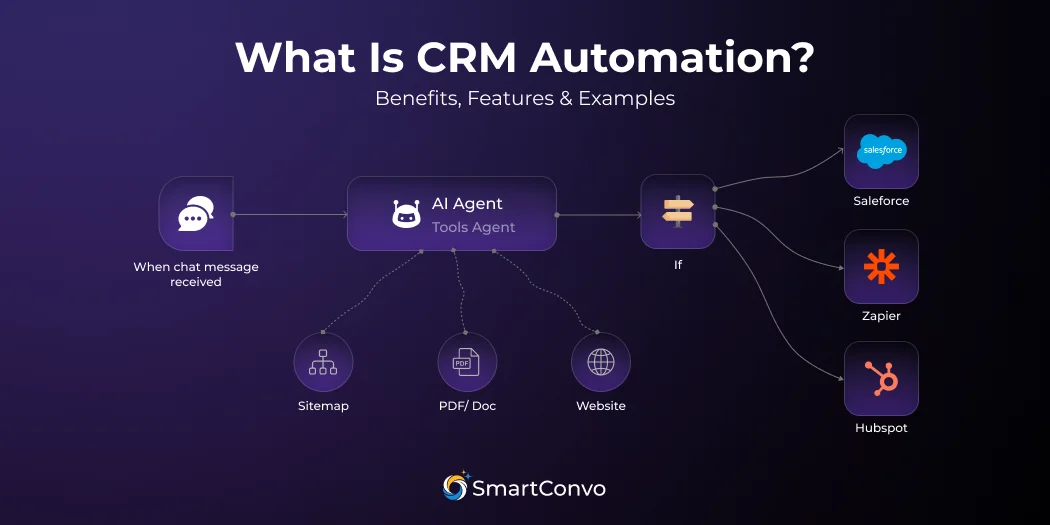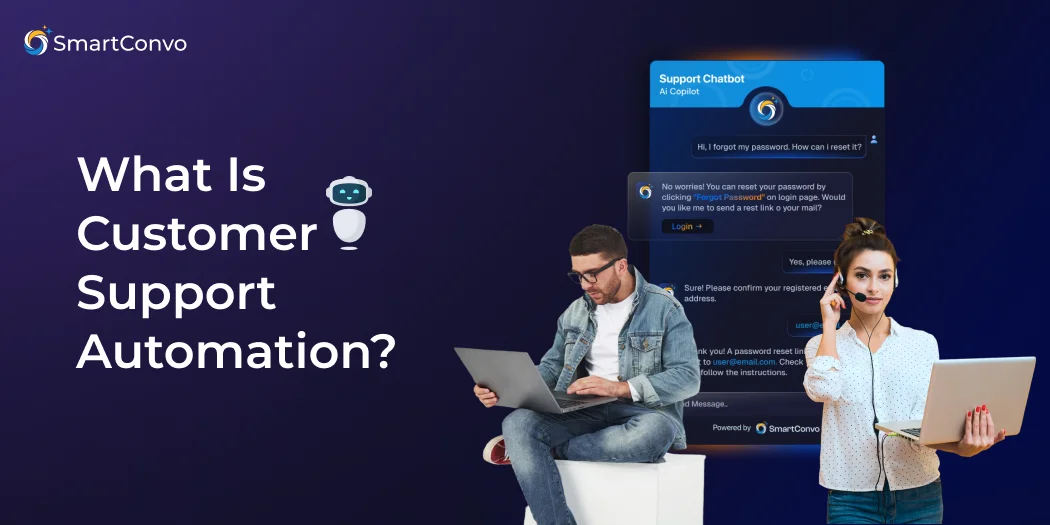Imagine a world where HR professionals can focus more on shaping company culture and less on answering the same employee queries over and over. Sounds incredible, right? This dream is not just possible—it’s achievable with an HR Knowledge Base.
Managing a workforce inherently involves juggling vast amounts of information. Whether it’s policies, onboarding processes, compliance details, or benefits plans, HR teams deal with repetitive queries, critical information, and often-overwhelming tasks daily. An HR Knowledge Base is a powerful tool designed to help streamline these responsibilities while elevating organizational efficiency.
This blog will explore everything you need to know about implementing a Knowledge Base for HR, why it’s indispensable for HR teams, and the 8 key benefits of a Knowledge Base in action. Plus, we’ll walk you through how to start building your own and how tools like Smartconvo can help every step of the way.
Whether you’re looking to save time, cut down on repetitive admin tasks, or provide employees with a better experience, an HR Knowledge Base might just be the game-changer your organization needs. If you’re ready to unlock the full potential of your HR department, read on—we promise it’ll be worth your time!
What Is an HR Knowledge Base for HR?
An HR Knowledge Base is a centralized digital resource that holds essential HR-related information. It serves as a self-service solution for employees to access policies, FAQs, guidelines, and more—all with a quick search.
Think of it as a one-stop shop for everything your workforce needs, from the newest PTO policy to step-by-step guides for benefits enrollment. For HR teams, it reduces workload by addressing repetitive questions, preserving institutional knowledge, and creating consistency in communication, making sure all employees receive the same accurate and up-to-date information. Overall, an HR Knowledge Base is a powerful resource for enhancing efficiency, improving employee experience, and streamlining HR operations.
Why Do HR Teams Need a Knowledge Base?

HR teams face endless challenges that can bog down their productivity. Here’s why a Knowledge Base for HR is becoming a necessity in modern workplaces:
Handle Repetitive Queries with Ease
Answering the same questions about vacation policies or performance evaluations? An effective HR chatbot and HR Knowledge Base address FAQs upfront, freeing up time for HR professionals to focus on strategic projects rather than repetitive tasks.
Streamline Onboarding
Onboarding new employees can be a time-consuming process. By providing easy access to onboarding materials, guides, and policies, the onboarding experience becomes seamless for both employees and HR teams.
Ensure Compliance
A Knowledge Base helps HR teams maintain up-to-date information on labor laws and regulations. Keeping compliance documents in one place ensures nothing critical slips through the cracks.
Bridge Communication Gaps
When HR information is scattered across emails, PDFs, and meetings, miscommunication is inevitable. A centralized Knowledge Base ensures clarity, consistency, and easy access for employees and managers alike.
Why Is Knowledge Base for HR Important?

Beyond solving operational challenges, a knowledge base provides strategic advantages that elevate how HR departments function. Here’s how it transforms your workplace:
Fosters Employee Independence
Employees can find answers to their questions quickly and easily, without the need to wait for assistance from an HR representative. Whether it’s accessing information about company policies, benefits, or payroll, this self-service capability saves time and reduces frustration. By putting key resources at their fingertips, it fosters a more empowered and independent workforce, allowing employees to focus on their roles while feeling confident they have the support they need.
Preserves Critical Knowledge
Long-standing HR professionals bring years of experience and institutional knowledge that can be invaluable to an organization. However, when these team members leave or retire, their expertise can be lost, creating gaps in knowledge and processes. A Knowledge Base helps address this issue by preserving critical information, best practices, and insights.
Drives Strategic Focus
By reducing the time spent on routine queries and administrative tasks, HR teams can redirect their energy toward more impactful and strategic initiatives. This includes focusing on talent development programs to help employees grow, implementing robust Diversity, Equity, and Inclusion (DEI) strategies to foster a more inclusive workplace, and designing effective leadership training programs to build strong, capable leaders who can drive the organization forward.
Boosts Collaboration
A Knowledge Base for HR fosters better knowledge sharing and collaboration across teams by centralizing important information in one easily accessible place. From managers to new hires, everyone benefits from instant access to essential resources such as onboarding materials, company policies, training guides, and FAQs. This not only saves time but also ensures consistency in communication and helps create a more informed and productive workplace.
8 Key Benefits of Building an HR Knowledge Base

Saves Time
When employees and managers can access the exact information they need in seconds, it eliminates the frustration and delays of waiting for HR to respond to emails or questions. Whether it’s checking policies, retrieving important documents, or clarifying procedures, having instant access simplifies tasks and reduces bottlenecks. This streamlined process not only improves efficiency but also saves hours of work every week, allowing teams to focus on more strategic and value-driven activities.
Reduces Errors
An up-to-date HR Knowledge Base is an essential tool for any organization, as it ensures all employees receive consistent and accurate information. By centralizing policies, procedures, and guidelines in one easily accessible location, it minimizes misunderstandings, reduces policy-related errors, and fosters better communication. This not only saves time for HR teams but also empowers employees to find the answers they need quickly and efficiently.
Improves Onboarding
From training guides to benefits signups, onboarding becomes significantly more efficient with an easily accessible repository of tools and documents. By having all the necessary resources in one place, new hires can quickly find the information they need without confusion or delays. This streamlined approach not only saves time for both employees and HR teams but also ensures that new team members feel supported from day one.
Enhances Compliance
Having housing policies and labor law updates in one centralized location helps organizations avoid costly compliance risks and ensures they stay up to date with regulatory changes. With streamlined access to this information, HR professionals can maintain accurate, consistent, and easily accessible documentation, making it simpler to address employee concerns, meet legal requirements, and prepare for audits or inspections.
Elevates Employee Satisfaction
Employees appreciate quick access to clear and accurate answers, especially when they are navigating complex tasks or seeking guidance. Providing this kind of support not only reduces frustration but also empowers them to focus on what they do best, leading to increased productivity and job satisfaction. Over time, a happier and more engaged workforce can significantly improve team morale and translate into higher retention rates, saving businesses time and resources spent on rehiring and training.
Ensures Scalability
For growing businesses, scaling HR effectively can be a complex and time-consuming challenge. As your team expands, managing processes, policies, and employee information becomes increasingly difficult. A Knowledge Base for HR grows alongside your team, providing a centralized hub for crucial HR resources, documents, and policies. This ensures seamless operations, reduces administrative burden, and empowers employees to access the information they need quickly and independently as your organization continues to grow.
Encourages Knowledge Sharing
Easy access encourages employees and managers to share ideas, tips, and best practices, fostering a collaborative environment where knowledge flows freely. This exchange of information not only helps individuals improve their skills but also promotes innovation, teamwork, and continuous growth, benefiting the entire workforce in the long run.
Supports Remote Work
With distributed teams becoming the norm, having a Knowledge Base ensures remote employees feel equally supported with access to crucial HR resources.
Steps to Build a Knowledge Base for HR Strategy

Step 1: Improve Accessibility to HR Information
Centralize and digitize essential documents, policies, and FAQs to make them easily accessible to employees. Consider leveraging AI tools like Document AI for Knowledge Management to help organize your repository intelligently.
Step 2: Increase Efficiency for HR Teams
Use tools like HR Case Management Systems and AI Chatbots for HR Management to integrate your knowledge base in HR into everyday workflows and automate how information is delivered.
Step 3: Streamline Onboarding Processes
Add a dedicated onboarding section to your Knowledge Base to ensure new team members feel supported from day one. Include comprehensive training materials, welcome kits, role-specific resources, and step-by-step guides to help them quickly understand their responsibilities and integrate seamlessly into the team
Step 4: Enhance Knowledge Retention
Utilize Conversational AI Chatbots to ensure that tribal knowledge and processes are preserved within the Knowledge Base, allowing your team to easily access critical information.
Step 5: Ensure Consistent Communication
Keep your Knowledge Base updated regularly to ensure your team always has access to the most accurate and relevant information. Leverage Generative AI Integration to automate the process, delivering real-time updates, notifications, and alerts across your organization.
Step 6: Create Scalable Solutions for Growing Businesses
Design your Knowledge Base to scale seamlessly as your organization grows. Start by building a solid foundation that can adapt to increasing demands over time. Consider integrating advanced tools like LLM-Based Chatbots, which leverage large language models to handle complex queries and manage growing volumes of data efficiently.
Step 7. Promote It Within Your Organization
Educate employees about the Knowledge Base through internal newsletters, interactive tutorials, and team meetings to ensure adoption across the organization.
Creating a Knowledge Base for Your HR Team
Building a robust HR Knowledge Base might seem overwhelming at first, but the benefits far outweigh the effort! Using tools like Document AI for Knowledge Management, AI Sales Chatbot, and Conversational AI Chatbots, you can simplify the process while ensuring accuracy and accessibility.
If you’re ready to take the first step, consider leveraging platforms that seamlessly integrate Generative AI to create a scalable, searchable repository of knowledge. Tools like Smartconvo can transform the way your team manages HR operations.
Get Started with Smartconvo for Your HR Knowledge Base
Smartconvo offers cutting-edge solutions like HR Knowledge Management systems powered by Conversational AI Chatbots for seamless employee interactions. By integrating tools like LLM-Based Chatbots or Generative AI Integration, Smartconvo empowers you to create an intuitive Knowledge Base tailored to your needs.
Sign up today to explore how Smartconvo can revolutionize your HR department and improve your workforce’s productivity.
No Credit Card Required | 14 days Free Trial
Build Your Chatbot
Conclusion
A knowledge base isn’t just a resource—it’s an investment in your team’s success and your company’s efficiency. With the right setup, you’ll unlock smoother workflows, happier employees, and a more productive HR department. Conversational AI can further enhance your HR knowledge base by providing instant, accurate responses to employee inquiries, reducing manual workloads, and improving overall efficiency. Don’t wait—start building your HR knowledge base today. Looking for more tips or tools to enhance your HR processes? Subscribe to our newsletter for expert insights and free resources to transform your HR strategy!
Frequently Asked Questions (FAQ)
There’s no one-size-fits-all. Your HR Knowledge Base should grow alongside your organization, expanding to meet your workforce’s needs.
Promote it frequently! Host workshops, include it in onboarding, and demonstrate its value in solving employee concerns.
Absolutely! Tools like Generative AI and Conversational AI can make information retrieval easier by providing employees with real-time, context-specific answers.
Absolutely! Tools like Generative AI Integration and LLM Chatbots can enhance your Knowledge Base with features like conversational search, personalized responses, and intelligent data analysis.
Yes! While it’s perfect for enterprises, it’s equally beneficial for small businesses looking to streamline processes and scale without extra HR overhead.













